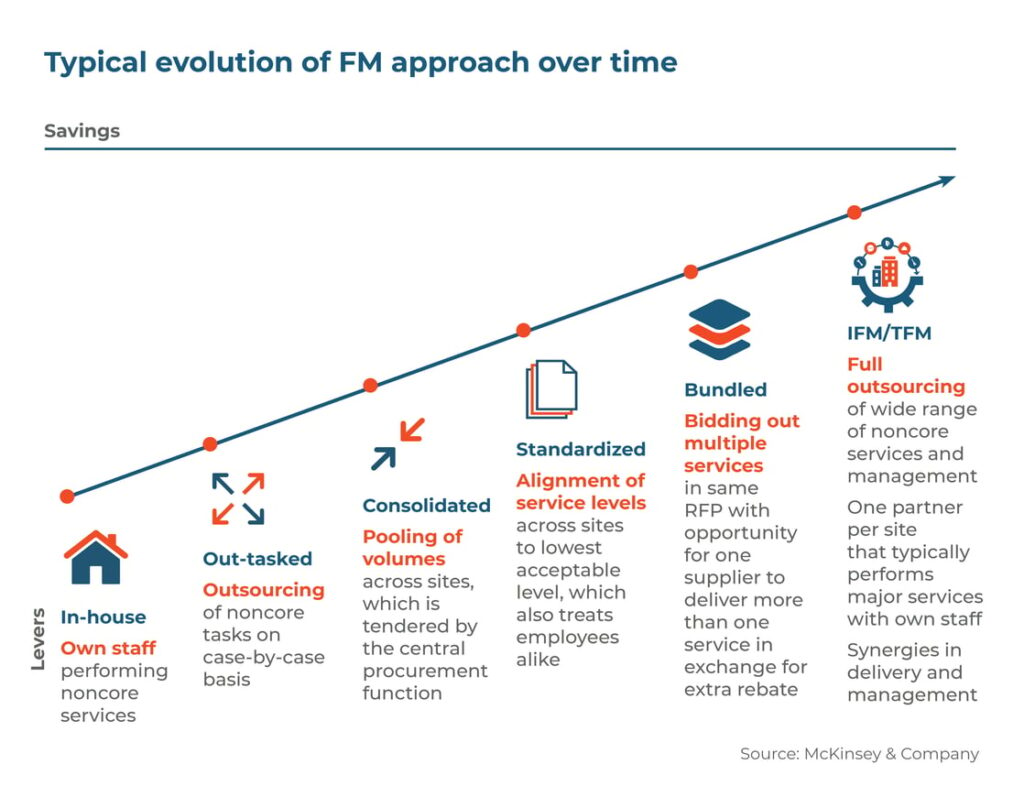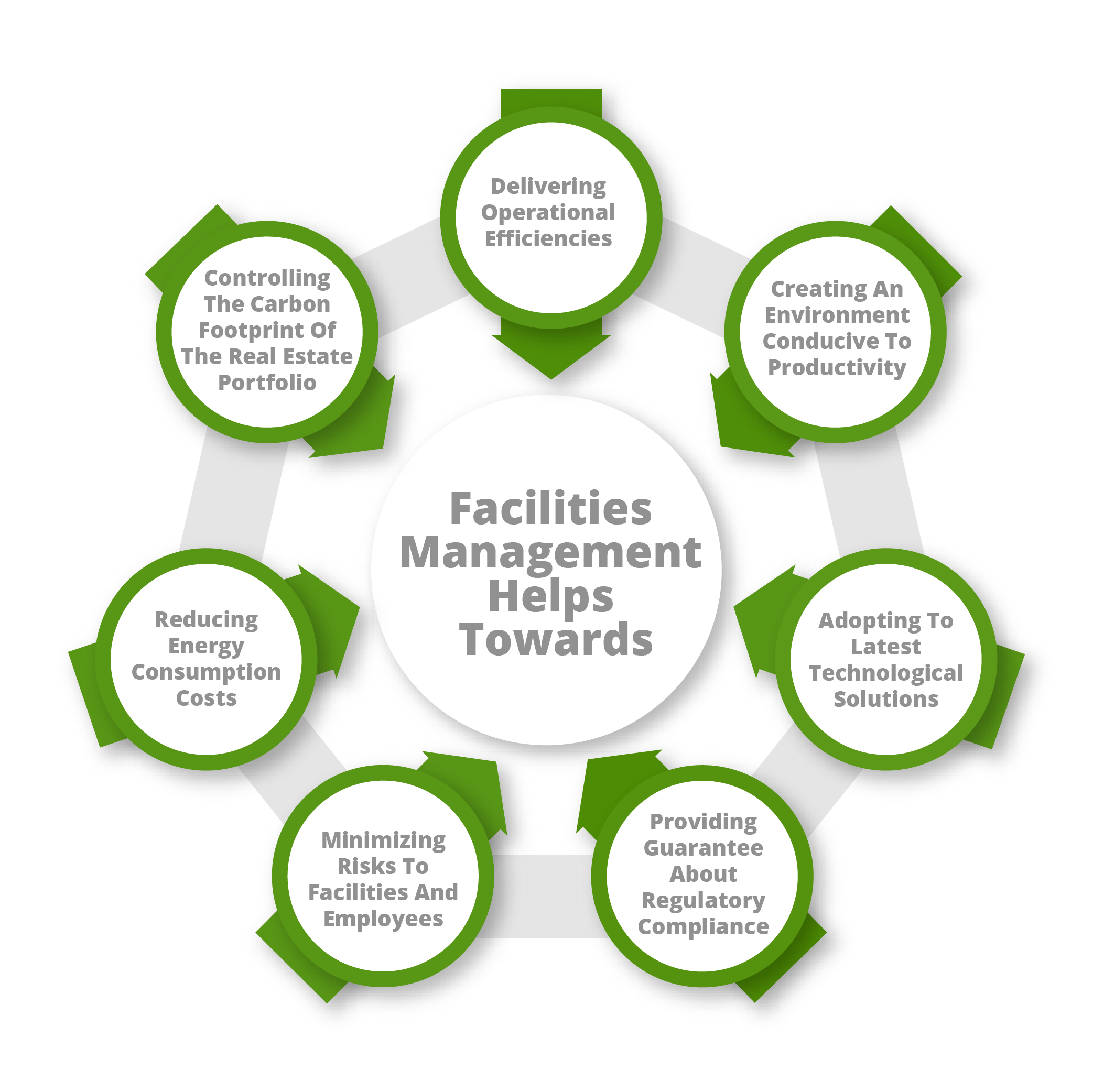Why Total Facility Management Is Important for Organization Success
Total Facility Management (TFM) serves as a keystone for service success by balancing diverse operational facets such as upkeep, area application, and precaution. This integration not only improves performance but also straightens facility management with overarching organizational goals. As services browse a competitive landscape, recognizing the multifaceted advantages of TFM can be pivotal in driving cost performance and improving staff member performance. The implications of embracing TFM expand far past prompt operational gains, raising essential concerns concerning its long-term effect on business strength and competitiveness. What lies underneath this crucial framework?
Recognizing Total Facility Management
Total Facility Management (TFM) includes a comprehensive method to handling a company's structures and connected services to make sure ideal performance, security, and efficiency. TFM integrates various disciplines, consisting of upkeep, procedures, area management, and security protocols, to create a cohesive framework that supports a company's core purposes.
At its core, TFM intends to enhance the processes involved in facility management, boosting and minimizing redundancies service delivery. This approach entails the control of activities related to home management, such as repairs, cleaning, and energy management, to cultivate an effective atmosphere for employees and stakeholders alike. TFM likewise emphasizes the relevance of applying finest techniques and ingenious modern technologies to boost solution high quality and reduce operational prices.
Comprehending TFM calls for recognition of its critical relevance in supporting a company's goal. By lining up facility management activities with business goals, TFM boosts general efficiency while making sure compliance with wellness, safety, and environmental laws. Therefore, TFM serves not just as a logistical function yet likewise as a strategic property, adding to a company's long-term sustainability and growth. In summary, TFM is necessary for developing a well-functioning environment conducive to organization success.
Key Benefits of TFM
Leveraging a detailed strategy, organizations that apply Total Facility Management (TFM) unlock a myriad of advantages that contribute to total company success. One of the key advantages of TFM is the enhancement of functional performance. By consolidating facility solutions under a unified management structure, companies can enhance procedures, lower redundancies, and boost interaction throughout divisions.
In addition, TFM advertises an aggressive upkeep approach, which minimizes downtime and extends the lifespan of facilitiess and tools (Total Facility Management). This aggressive strategy not just boosts performance however likewise cultivates a more secure working setting, inevitably bring about greater worker fulfillment and retention rates
Additionally, TFM helps with better source allowance by supplying insights into facility efficiency metrics. Organizations can identify areas for improvement, enabling them to make enlightened decisions that align with their critical goals.
TFM and Cost Effectiveness
Attaining cost efficiency is an essential objective for companies, and Total Facility Management (TFM) plays a crucial role in this undertaking - Total Facility Management. By incorporating numerous facility services under a single management framework, TFM makes it possible for organizations to streamline operations and have a peek at these guys minimize redundancies. This all natural approach results in considerable cost savings, as it eliminates the need for multiple suppliers and simplifies purchase procedures
Furthermore, TFM promotes proactive upkeep approaches, which decrease the threat of pricey repair services and downtime. By focusing on preventative measures, organizations can prolong the lifespan of their properties and lower unanticipated expenses. In addition, TFM integrates power management techniques, which can considerably cut utility costs via efficient source use.
The centralization of information and analytics within TFM allows companies to make informed monetary decisions. By determining patterns and areas for improvement, TFM makes it possible for customized techniques that additionally enhance price management. Moreover, the scalability of TFM services ensures that as companies grow, their facility management practices continue to be reliable and lined up with monetary objectives.
Enhancing Staff Member Productivity
A well-managed facility can dramatically boost worker performance by producing a helpful work environment. Effective Total Facility Management (TFM) guarantees that all elements of the office-- from illumination and temperature level to tidiness and safety-- are enhanced. When workers operate in an area that is comfortable and well-maintained, they are much more likely to concentrate on their tasks, causing greater output and job fulfillment.
In addition, TFM can improve collaboration through the calculated layout of communal locations, encouraging team effort and technology. By investing in the appropriate sources and technology, organizations can assist in seamless communication and improve workflows, better improving performance. Normal maintenance and timely reactions to facility issues avoid interruptions that could or else prevent efficiency.
In addition, a secure and healthy and balanced workplace, sustained by TFM practices, minimizes absenteeism and promotes health, directly correlating with enhanced efficiency degrees. Inevitably, focusing on facility management is a financial investment not just in physical assets but also in the labor force itself. By cultivating a setting that supports employee demands and choices, businesses can grow a more engaged and reliable labor force, driving overall success and affordable benefit.

Future Trends in TFM
Embracing technological innovations is readied to reshape the landscape of Total Facility Management (TFM) in the coming years. As the Continued need for performance and sustainability rises, TFM will significantly take on wise building innovations, incorporating Net of Points (IoT) devices to keep track of and handle facility operations in real-time. This shift will allow aggressive maintenance, substantially improving and decreasing operational expenses service distribution.

Sustainability remains an essential emphasis, with TFM professionals expected to prioritize green practices. This consists of using eco-friendly energy sources and enhancing waste management systems to minimize the carbon impact of facilitiess.
Remote management capabilities will likewise be broadened, enabling facility supervisors to manage operations from virtually anywhere. This adaptability will certainly end up being vital as companies adjust to hybrid job models. In recap, the future of TFM is poised for makeover via modern technology, sustainability, and boosted functional methods, making certain organizations continue to be affordable in an evolving landscape.
Final Thought
By incorporating various operational functions, TFM enhances efficiency and lines up facility management with organizational purposes. As businesses progressively take on ingenious innovations and sustainable techniques, the significance of TFM will continue to expand, ensuring long-term operational efficiency and competitiveness in a progressing industry.
